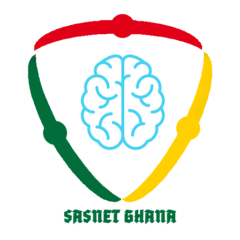More Women are Dying from Stroke
More Women are Dying from Stroke
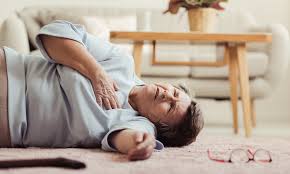
Stroke is a leading cause of death and number one cause of serious long-term disability (cdc) globally. Stroke reduces mobility in more than half of stroke survivors and imposes greater burden on families, society, etc. Stroke is the third leading cause of death in women. Stroke also kills more women than men each year especially in Africa. A stroke can permanently disable a person. But many strokes are preventable and treatable. Every woman can take steps to prevent stroke by knowing her risk factors and making healthy changes.
According to studies, 60 percent of women who have stroke will die from it, compared to 40 percent of men who may live with some forms of disability for awhile as a result their strokes. Women and men are different, and so are their signs and symptoms for stroke,. 27% of women could name more than two of the six primary stroke symptoms.
7 out of 10 women according to studies, said they are not aware they are more likely to have a stroke than men, and were not at all or only somewhat knowledgeable about risk factors (memorialcare).
Stroke in Women

A stroke can happen in different parts of the brain in women. The brain is divided into four main parts:
- The right hemisphere.
- The left hemisphere.
- The cerebellum, which controls balance and coordination.
- The brain stem, which controls all of our body’s functions that we don’t think about, such as heart rate, blood pressure, sweating, or digestion.
A stroke in the right half of the brain can cause:
- Problems moving the left side of your body.
- Problems judging distances. You may misjudge distances and fall. Or you might not be able to guide your hands to pick something up.
- Impaired judgment and behavior. You may misjudge your ability to do things. You may also do things you would not normally do, such as leave your house without getting fully dressed.
- Short-term memory loss. You may be able to remember events from 30 years ago, but not how to get to the place where you work today.
A stroke in the left half of the brain can cause:
- Problems moving the right side of your body.
- Speech and language problems. You may have trouble speaking or understanding others.
- Slow and cautious behavior. You may need a lot of help to complete everyday tasks.
- Memory problems. You may not remember what you did 10 minutes ago. Or you may have a hard time learning new things.
A stroke in the cerebellum can cause:
- Stiffness and tightness in the upper body that can cause spasms or jerky movements.
- Eye problems, such as blurry or double vision.
- Balance problems.
- Dizziness, nausea (feeling sick to your stomach), and vomiting.
Strokes in the brain stem are very harmful. Since impulses that start in the brain must travel through the brain stem on their way to the arms and legs, patients with a brain stem stroke may also develop paralysis (Womenshealthgov)
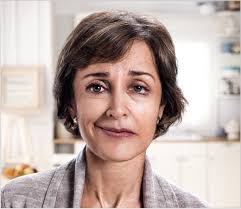
Stroke is no friend to women. It kills more women than men.The higher stroke risk in women might be due to:

- Pregnancy –The risk of stroke in pregnant women is 21 per 100,000, with the highest stroke risk during the third trimester and post-partum. Those with high blood pressure should be treated with medications and monitored closely.
- Preeclampsia – This is high blood pressure that develops during pregnancy. Preeclampsia doubles the risk of stroke later in life. If you have any history of hypertension, talk to your healthcare provider about taking low-dose aspirin starting in the second trimester.
- Birth control pills – Birth control pills have become much safer over time, but women who are already at risk of stroke should take extra precautions. Get screened for high blood pressure before the pill is prescribed. And never smoke while taking oral contraceptives.
- Hormone replacement therapy – This type of therapy should never be used to prevent stroke in post-menopausal women.

- Migraines with aura –Migraine with aura is associated with ischemic stroke in younger women, particularly if they smoke or use oral contraceptives. Smokers with migraines accompanied by aura should quit immediately.
- Atria fibrillation and Heart diseases – This increases stroke risk among women.
Women are at a higher risk for a stroke, it is therefore important for women to take care of themselves. Especially, getting lots of rest to ease tension or stress, eating the right foods and being physically active, Avoiding tobacco smoking, secondary smoking or Shisha (electronic smoking), avoid intake of alcohol.

Stroke sudden symptoms of stroke
Sudden numbness or weakness of face, arm or leg, especially on one side of the body.
Sudden confusion, trouble speaking, or understanding.
Sudden trouble seeing in one or both eyes.
Sudden trouble walking, dizziness, loss of balance or coordination sudden severe headache with no known cause.
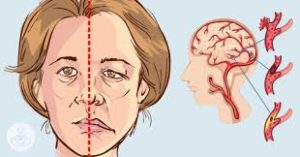
Stroke symptoms in Women
Ideally women may report symptoms that are different from the common symptoms of stroke, they may include;
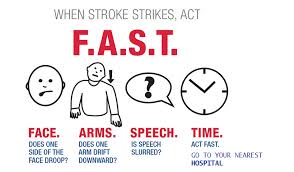
- Loss of consciousness or fainting.
- General weakness.
- Difficulty or shortness of breath.
- Confusion, unresponsiveness or disorientation.
- Sudden behavioral change.
- Agitation.
- Hallucination.
- Nausea or vomiting.
- Pain.
- Seizures.
- Hiccups.
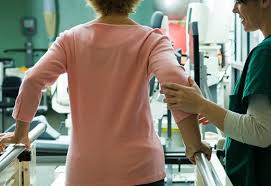
Women group(s)/ individuals are invited to sign up to the “Ask Dr Charway –Felli ” to receive more information on stroke prevention.
Register for free support online here : care.sasnetghana.org/ask-charway/
FREE SUPPORT : Person living with stroke and their carers can have answers to their mind boggling questions and access information on stroke care and support by signing up to the Post Discharge Stroke Support(PDSS) Program by the Stroke Association Supportnetwork-Ghana (SASNET-GHANA).
Visit our website below for more information
http://:care.sasnetghana.org or email us : info@sasnetghana.org
Helpline + 233594989496 or WhatsApp us +233262463986
Sign up to Ask Dr Charway –Felli Platform for more support from the Professionals
Register for free support online here : care.sasnetghana.org/ask-charway/

